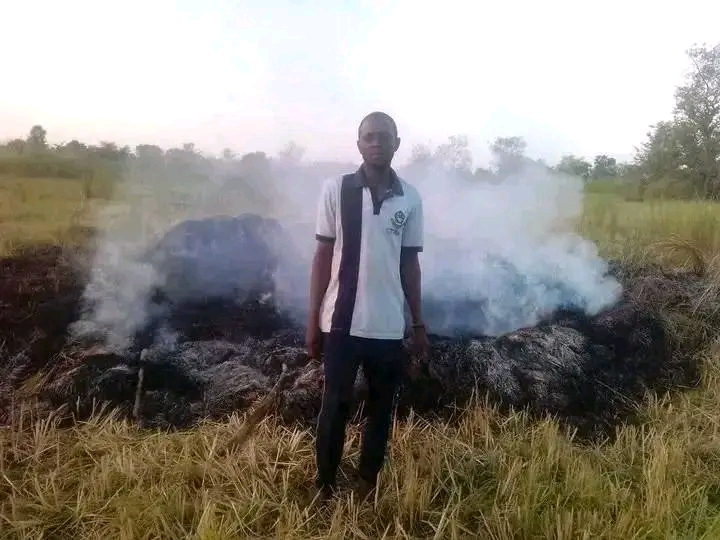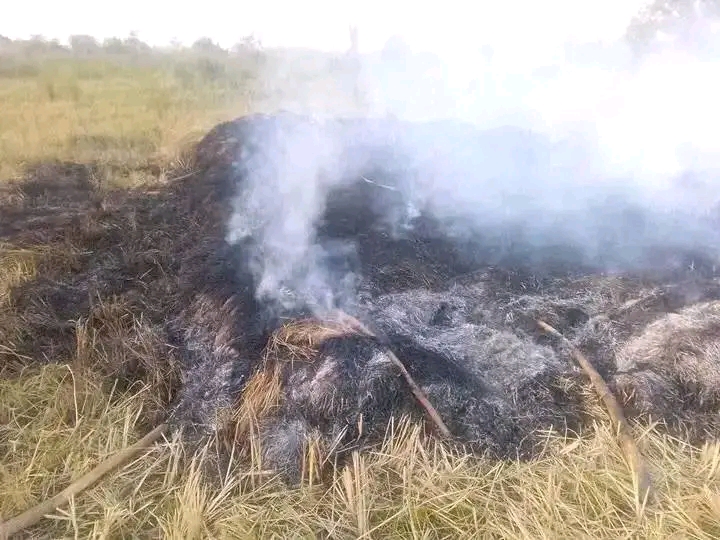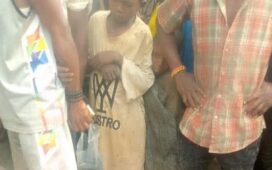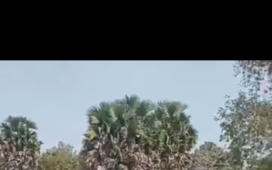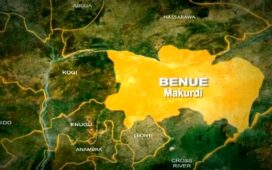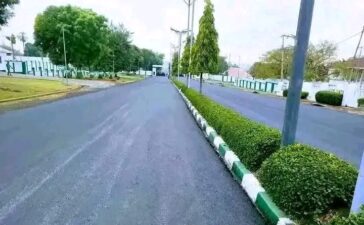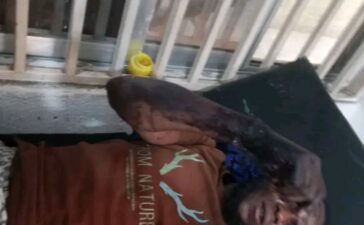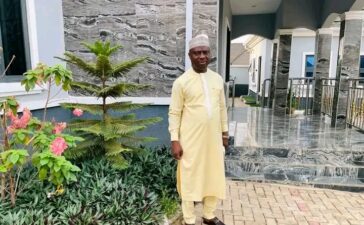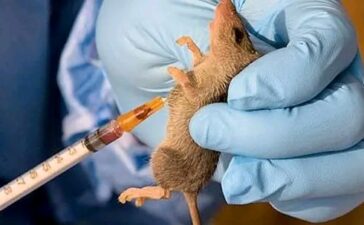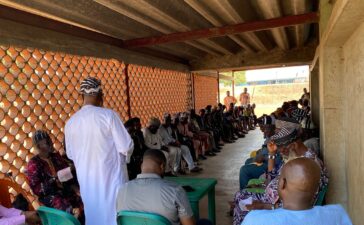Join our WhatsApp channel HERE for the latest Benue news and updates!
In the heart of Benue State, often hailed as Nigeria’s “Food Basket,” a Sunday afternoon turned into a nightmare for one family when suspected Fulani herdsmen allegedly torched a sprawling rice farm, reducing years of labor to smoldering ashes. The attack, which unfolded on November 2, 2025, in Gwer West Local Government Area, has reignited cries for urgent intervention amid a relentless wave of violence that’s choking the region’s agricultural lifeline.
Eyewitness accounts paint a harrowing picture of the blaze that consumed several hectares of mature rice crops along the Naka-Makurdi road. The farm, owned by Mr. Ugabakaya at Tse Orbiam, wasn’t just a patch of land—it was the family’s primary source of income, painstakingly nurtured through the rainy season’s toil. Harvested heaps awaiting threshing went up in flames alongside the standing fields, leaving the Ugabakaya family staring into an abyss of financial devastation and emotional trauma. “The inferno was merciless,” recounted local eyewitness Ado Bartholomew, his voice heavy with the weight of shared loss. “It swallowed everything in its path, turning hope into heaps of charred remains.”
This isn’t an isolated spark in the dark; it’s a flare-up in a longstanding conflagration. Benue, with its fertile soils feeding millions across Nigeria, has become a battleground where clashes between nomadic herders and sedentary farmers erupt over scarce resources, exacerbated by climate pressures and ethnic tensions. The state’s 2017 anti-open grazing law aimed to curb such conflicts by mandating ranching, but implementation has been spotty, allowing disputes to fester into deadly infernos. Just this year alone, security analysts estimate over 1,000 lives lost in Benue to similar violence, with attacks crippling yam, maize, and now rice production—staples that ripple through national food security. In May, 42 souls were claimed in a single wave of assaults; June saw over 50 in Gwer West and Apa areas alone. The pattern is grim: herders, predominantly Fulani and Muslim, move south for pasture, only to clash with Christian farming communities like the Tiv, whose lands they traverse.
Residents of Gwer West, a patchwork of villages dependent on the soil, gathered at the site in stunned solidarity, their pleas echoing across social media and local airwaves. “We’ve begged for years—where are the security forces when we need them most?” one sympathizer lamented, echoing a chorus of frustration. The appeals target federal agencies and the Benue government, demanding not just patrols but a fortified buffer against the “relentless assaults” that have displaced thousands and sown seeds of famine. Farmers like Ugabakaya now face the harsh math of rebuilding: millions in losses, no insurance, and a harvest season that’s slipped away like smoke. Aid groups warn this could spike rice prices nationwide, hitting the poorest hardest in a country already grappling with inflation.
As the sun sets on the blackened fields, the Ugabakaya family’s distress mirrors a deeper crisis—one where environmental strain, historical grievances, and policy gaps fuel a humanitarian powder keg. Experts point to root causes like desertification pushing herders southward, but solutions remain elusive: ranching subsidies? Community dialogues? Beefed-up policing? For now, the ashes whisper a urgent truth—without swift action, Benue’s bounty could turn to barren earth, and its people to ghosts of the land they once tilled. The nation watches, but will it act before the next farm falls?

